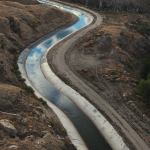CDOT official feared Independence Pass fiasco could jeopardize agency’s status with Google, others
State agency mapping apps showed Highway 82 was closed when it wasn’t
When the Colorado Department of Transportation deceptively reported that mudslides closed Independence Pass on Aug. 4, some agency officials feared they were jeopardizing their “trusted partner” status with navigation services, emails show.
The fallout from CDOT’s false reporting of the closure of Highway 82 could potentially mean future delays in getting information to motorists about problems on state highways due to mudslides, floods avalanches and accidents.
CDOT is now downplaying the Independence Pass fiasco, but emails obtained in a open records request show that the agency official who had the best luck getting services such as Google, Waze and Apple to post road closure information in a timely manner on their maps was concerned about harming those relationships.
Gregg Miller, a CDOT business process architect, was tasked with contacting the navigation services when agency officials were desperately trying to prevent motorists from flooding Highway 82 during the closure of Interstate 70 through Glenwood Canyon because of mudslides and the ensuing damage.
Traffic levels were hitting an estimated 7,000 to 9,000 vehicles per day during the week of Aug. 1 compared to a normal load of 1,000 vehicles per day, one official estimated.
John Lorme, CDOT director of maintenance and operations, directed Miller via email on Aug. 4 at 11:49 a.m. to get the roads closed on the navigation services.
“I need this to show closed to traffic on the mapping apps, soonest,” Lorme wrote. “I will assume responsibility. All locals understand what’s going on. It’s the (commercial vehicle) and (recreational vehicle) traffic that is creating hazardous conditions.”
The emails were obtained through a Colorado Open Records Request by the Glenwood Springs Post Independent, a sister publication of The Aspen Times.
Miller was successful in getting Google, Waze, Apple and TomTom to show Highway 82 as closed on Aug. 4. However, CDOT executive director Shoshana Lew insisted that evening that the agency keep Highway 82 marked as open on cotrip.org, the agency’s real-time road status app.
Lorme was forced to do an about-face and direct Miller to contact the navigation services again to correct the status of Highway 82.
“I guess I had the best of intentions, but bad judgment,” Lorme wrote to Miller the night of Aug. 4.
The next morning, Miller wrote to his supervisor, CDOT chief engineer Stephen Harelson, to express his concerns. Miller said maintenance and operations personnel had directed him to contact Google, Waze and Apple the prior day to ask them to “show Independence Pass closed for traffic routing purposes for the entire month of August.”
“We are currently listed as a ‘trusted partner’ with these services and while they questioned this (request), I explained to them that CDOT is concerned about the traffic levels on the road and they need to be closed,” Miller wrote. “They did it but questioned why COTRIP showed Independence Pass as open.”
Miller’s further explained to Harelson that CDOT was installing technology to provide automatic feeds of data to the navigation apps so their maps would be updated within two minutes of CDOT’s decisions. The new automated system would not even require a call from CDOT officials to the services.
“I am very concerned about notifying Google, Waze, Apple about reopening the road now,” Miller wrote. “I don’t know how they will react to keeping us as a trusted partner, or if they will allow us to automate these data feeds in the future.
“What should I be doing right now?” Miller asked his boss.
The navigation service companies were contacted and the status of Highway 82 was updated to open.
CDOT communications director Matthew Inzeo said Monday the agency retains strong relationships with the navigation services despite the incident.
“I can confirm we still have our trusted partner status,” Inzeo told The Aspen Times. “We don’t anticipate any disruptions to future closures either, and we hope that ongoing conversations with app companies will improve the ability for these closures to properly show and keep travelers on safe routes.”
A statement from Google sidestepped a direct question about whether the Independence Pass incident affected relations.
“Navigation guidance in Google Maps is based on street designations gathered from sources like authoritative data providers and real-time feedback from users,” Google’s statement to The Times said. “When official changes are made to restrict certain routes, we update our directions accordingly.”
Inzeo said CDOT and the navigation services continue to discuss how to better synchronize information.
“We share a goal in providing travelers with information to get where they are going safely,” he said.





